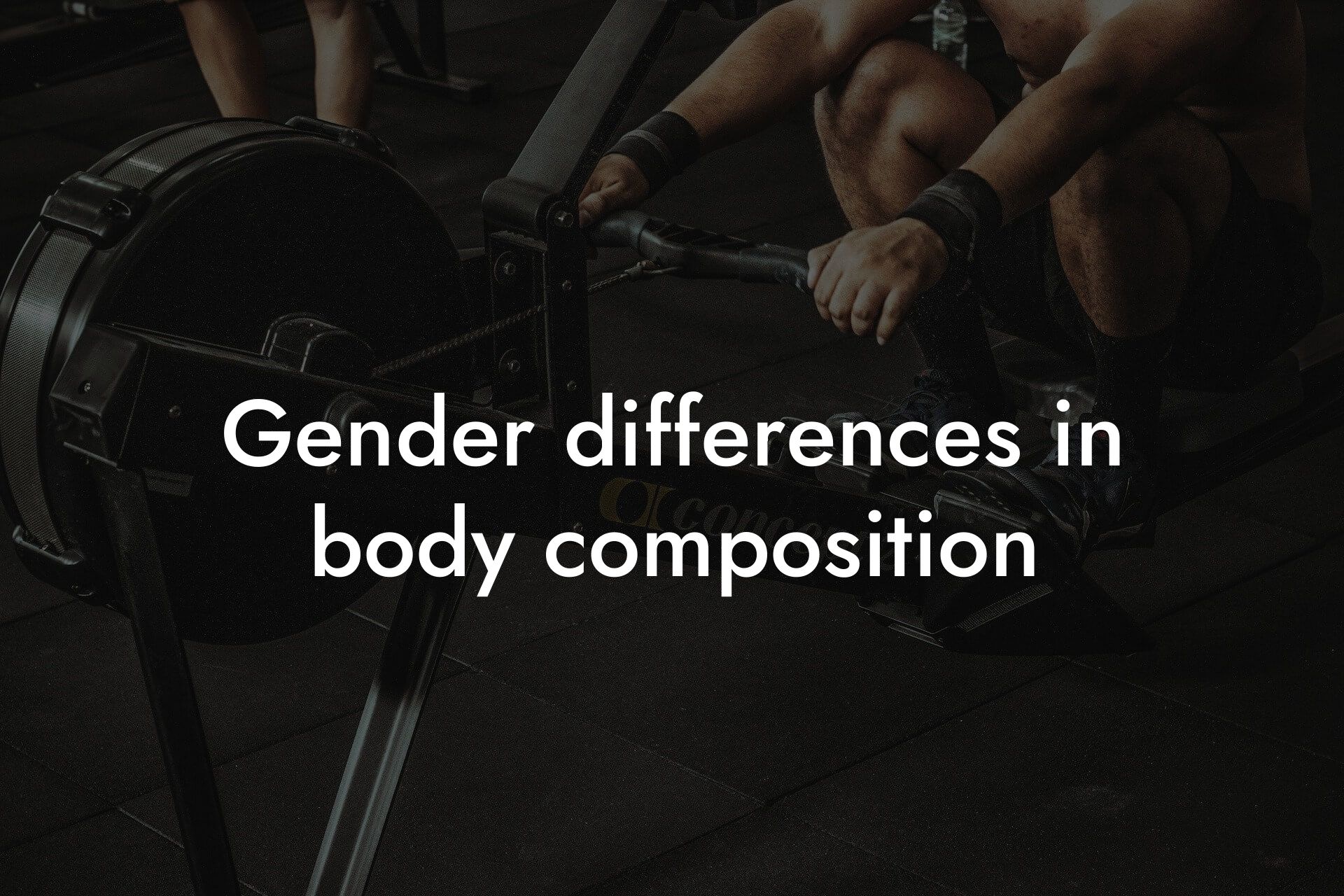Lean mass index (LMI) is an advanced body composition metric that provides a more accurate and comprehensive understanding of an individual's body composition. It is a measure of the amount of lean mass in the body, which includes muscle, bone, and other non-fat tissues. LMI is calculated by dividing the lean mass by the square of the height, and it is expressed in units of kilograms per meter squared (kg/m²).
Table of Contents
Why is Lean Mass Index Important?
Lean mass index is an important metric for individuals who want to optimize their body composition, particularly those who are interested in building muscle mass or improving athletic performance. A higher LMI indicates a greater amount of lean mass, which can improve overall health and fitness. Additionally, LMI can be used to track changes in body composition over time, allowing individuals to monitor the effectiveness of their training and nutrition programs.
How is Lean Mass Index Measured?
Lean mass index can be measured using a variety of methods, including dual-energy X-ray absorptiometry (DEXA), bioelectrical impedance analysis (BIA), and hydrostatic weighing. However, DEXA is considered the gold standard for measuring LMI due to its high accuracy and precision. At Tano Performance Group, we use a state-of-the-art DEXA machine to provide our clients with a comprehensive body assessment, including LMI.
What is a Good Lean Mass Index?
A good lean mass index varies depending on age, sex, and athletic status. Generally, a higher LMI is desirable, as it indicates a greater amount of lean mass. For adult men, a LMI of 18.5-21.5 kg/m² is considered normal, while a LMI of 21.6-24.5 kg/m² is considered high. For adult women, a LMI of 15.5-18.5 kg/m² is considered normal, while a LMI of 18.6-21.5 kg/m² is considered high.
How to Improve Lean Mass Index
Improving lean mass index requires a combination of proper nutrition and consistent training. Here are some tips to help you improve your LMI:
- Engage in resistance training exercises to build muscle mass
- Incorporate high-intensity interval training (HIIT) to improve muscle density
- Eat a balanced diet that includes adequate protein, carbohydrates, and healthy fats
- Get enough sleep and rest to allow your muscles to recover and grow
Lean Mass Index vs. Body Fat Percentage
Lean mass index and body fat percentage are two related but distinct metrics. Body fat percentage measures the percentage of body fat in relation to total body weight, while LMI measures the amount of lean mass in relation to height. While a low body fat percentage is often desirable, it does not necessarily indicate a high LMI. For example, an individual with a low body fat percentage may still have a low LMI if they have a small amount of muscle mass.
Benefits of Tracking Lean Mass Index
Tracking lean mass index can have several benefits, including:
- Improved athletic performance: A higher LMI can improve muscle power and endurance, leading to better athletic performance.
- Enhanced overall health: A higher LMI is associated with a reduced risk of chronic diseases, such as diabetes and cardiovascular disease.
- Better body composition: Tracking LMI can help individuals achieve a more balanced body composition, with a greater amount of lean mass and less body fat.
In conclusion, lean mass index is an advanced body composition metric that provides a more accurate and comprehensive understanding of an individual's body composition. By tracking LMI, individuals can optimize their body composition, improve athletic performance, and enhance overall health. At Tano Performance Group, we are committed to providing our clients with the most accurate and comprehensive body assessment, including LMI, to help them achieve their fitness and health goals.
Frequently Asked Questions
What is Lean Mass Index (LMI)?
Lean Mass Index (LMI) is an advanced body composition metric that calculates the amount of lean mass in your body relative to your height. It's a more accurate and informative measurement than traditional body mass index (BMI), which only considers weight and height.
Why is Lean Mass Index important for high-earning professionals?
As a high-earning professional, you understand the importance of maintaining a healthy and fit physique. Lean Mass Index helps you track your progress, identify areas for improvement, and make data-driven decisions about your fitness and nutrition plan. It's a valuable tool for optimizing your physical appearance and overall well-being.
How is Lean Mass Index calculated?
Lean Mass Index is calculated by dividing your lean body mass (LBM) by your height in meters squared. This formula provides a more accurate representation of your body composition than BMI, which can be misleading for individuals with a high percentage of muscle mass.
What is the difference between Lean Mass Index and Body Mass Index (BMI)?
BMI is a simple calculation that divides your weight by your height squared. However, it doesn't distinguish between lean mass and body fat. Lean Mass Index, on the other hand, specifically measures lean mass, providing a more accurate picture of your body composition.
What are the benefits of tracking Lean Mass Index?
Tracking Lean Mass Index helps you monitor changes in your lean mass over time, allowing you to adjust your fitness and nutrition plan accordingly. It's an effective way to optimize your physique, improve athletic performance, and reduce the risk of chronic diseases.
How often should I track my Lean Mass Index?
We recommend tracking your Lean Mass Index regularly, ideally every 4-6 weeks, to monitor your progress and make adjustments to your fitness and nutrition plan as needed. Consistency is key to achieving your goals and maintaining a healthy, fit physique.
What is a good Lean Mass Index score?
A good Lean Mass Index score varies depending on age, gender, and fitness goals. Generally, a higher score indicates a higher percentage of lean mass. For men, a score above 19.5 is considered excellent, while for women, a score above 16.5 is considered excellent.
How can I improve my Lean Mass Index score?
To improve your Lean Mass Index score, focus on resistance training exercises that build muscle mass, such as weightlifting and bodyweight exercises. Additionally, ensure you're consuming a balanced diet that provides adequate protein, carbohydrates, and healthy fats to support muscle growth and maintenance.
What is the relationship between Lean Mass Index and body fat percentage?
Lean Mass Index and body fat percentage are inversely related. As your Lean Mass Index score increases, your body fat percentage typically decreases. This is because lean mass is comprised of muscle, bone, and water, while body fat is comprised of adipose tissue.
Can Lean Mass Index be used for athletes?
Absolutely! Lean Mass Index is particularly useful for athletes who require a high percentage of lean mass to optimize their performance. It helps athletes track changes in their body composition, ensuring they're fueling their bodies with the right nutrients to support their specific sport or activity.
Is Lean Mass Index suitable for individuals with a high percentage of muscle mass?
Yes, Lean Mass Index is an excellent metric for individuals with a high percentage of muscle mass. Unlike BMI, which can be misleading for muscular individuals, Lean Mass Index accurately accounts for muscle mass, providing a more accurate representation of body composition.
How does Lean Mass Index relate to bone density?
Lean Mass Index is positively correlated with bone density. As your Lean Mass Index score increases, your bone density typically increases as well. This is because muscle mass plays a crucial role in maintaining strong bones.
Can Lean Mass Index be used for individuals with a medical condition?
Yes, Lean Mass Index can be used for individuals with certain medical conditions, such as osteoporosis or sarcopenia. However, it's essential to consult with a healthcare professional to determine the best approach for your specific situation.
How does Lean Mass Index compare to other body composition metrics?
Lean Mass Index is a more comprehensive metric than BMI and provides a more accurate representation of body composition than other metrics like waist-to-hip ratio. It's an excellent addition to your fitness toolkit, offering valuable insights into your overall health and physique.
What are some common misconceptions about Lean Mass Index?
One common misconception is that Lean Mass Index is only suitable for athletes or bodybuilders. However, it's a valuable metric for anyone looking to optimize their physique and overall health. Another misconception is that Lean Mass Index is too complex to track, but with the right tools and guidance, it's easy to incorporate into your fitness routine.
How can I track my Lean Mass Index at home?
There are several ways to track your Lean Mass Index at home, including using a body fat scale, skinfold calipers, or a dual-energy X-ray absorptiometry (DXA) scan. You can also consult with a healthcare professional or registered dietitian for guidance on tracking your Lean Mass Index.
What are some common mistakes people make when tracking Lean Mass Index?
One common mistake is not tracking Lean Mass Index consistently, which can lead to inaccurate results. Another mistake is not accounting for changes in body water, which can affect Lean Mass Index scores. It's essential to follow a consistent tracking protocol and consult with a healthcare professional if you have any questions or concerns.
How can I use Lean Mass Index to achieve my fitness goals?
Lean Mass Index is an excellent tool for achieving your fitness goals, whether you're looking to build muscle, lose fat, or improve athletic performance. By tracking your Lean Mass Index regularly, you can adjust your fitness and nutrition plan to optimize your physique and achieve your desired results.
What is the relationship between Lean Mass Index and overall health?
Lean Mass Index is positively correlated with overall health. A higher Lean Mass Index score is associated with a lower risk of chronic diseases, such as diabetes, cardiovascular disease, and certain types of cancer.
Can Lean Mass Index be used for individuals of all ages?
Yes, Lean Mass Index can be used for individuals of all ages. It's an excellent metric for tracking changes in body composition over time, which is particularly important for older adults who may experience age-related muscle loss.
How does Lean Mass Index relate to nutrition and meal planning?
Lean Mass Index is closely tied to nutrition and meal planning. A balanced diet that provides adequate protein, carbohydrates, and healthy fats is essential for maintaining and building lean mass. By tracking your Lean Mass Index, you can adjust your nutrition plan to optimize your physique and support your fitness goals.
What are some resources available for learning more about Lean Mass Index?
Tano Performance Group offers a range of resources, including articles, videos, and expert guidance, to help you learn more about Lean Mass Index and optimize your physique. You can also consult with a healthcare professional or registered dietitian for personalized guidance.
Here are some related articles you might love...
- The role of brown fat in body composition
- How body composition changes with endurance training
- Gender differences in body composition
- Understanding bone marrow density in DEXA scans
- How DEXA scans detect visceral fat
- The impact of muscle asymmetry on body performance
- How body composition affects metabolic rate
- Differences between subcutaneous and visceral fat
- How hydration levels affect body composition results
Zak Faulkner
Zak Faulkner is a leading authority in the realm of physical health and body composition analysis, with over 15 years of experience helping professionals optimise their fitness and well-being. As one the experts behind Tano Performance Group, Zak has dedicated his career to providing in-depth, science-backed insights that empower clients to elevate their physical performance and overall health.
With extensive knowledge of DEXA technology, Zak specializes in delivering comprehensive body assessments that offer precise data on body fat, muscle mass, bone density, and overall physique. His expertise enables individuals to make informed decisions and achieve their fitness goals with accuracy and confidence. Zak’s approach is rooted in a deep understanding of human physiology, combined with a passion for helping clients unlock their full potential through personalised strategies.
Over the years, Zak has earned a reputation for his commitment to excellence, precision, and client-focused service. His guidance is trusted by top professionals who demand the best when it comes to their health. Whether advising on fitness programs, nutritional strategies, or long-term wellness plans, Zak Faulkner’s insights are a valuable resource for anyone serious about taking their health and fitness to the next level.
At Tano Performance Group, Zak continues to lead our Content Team revolutionising how professionals approach their physical health, offering unparalleled expertise that drives real results.




